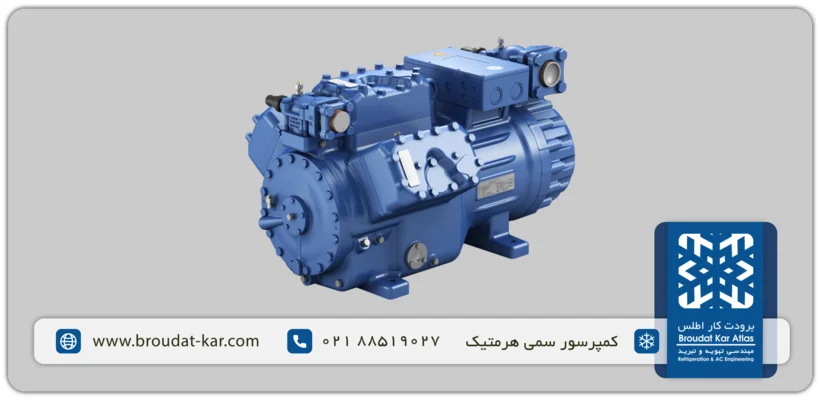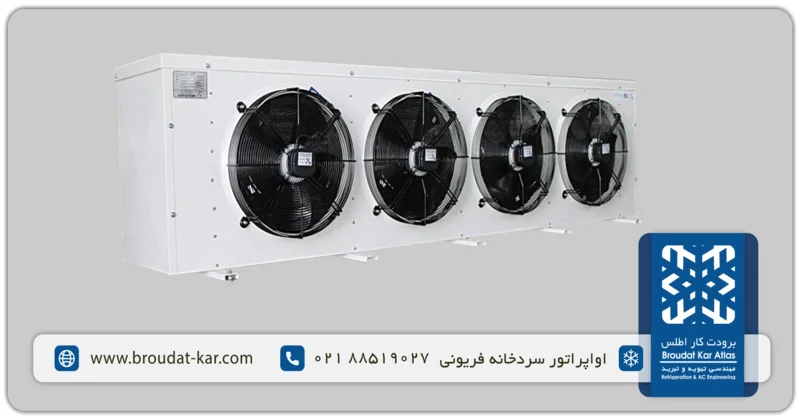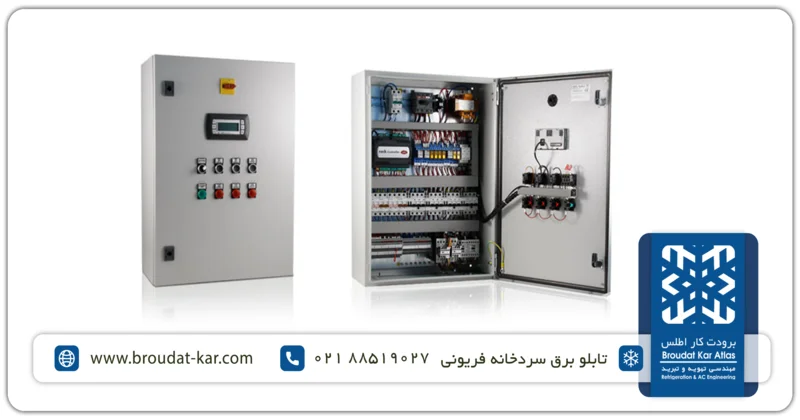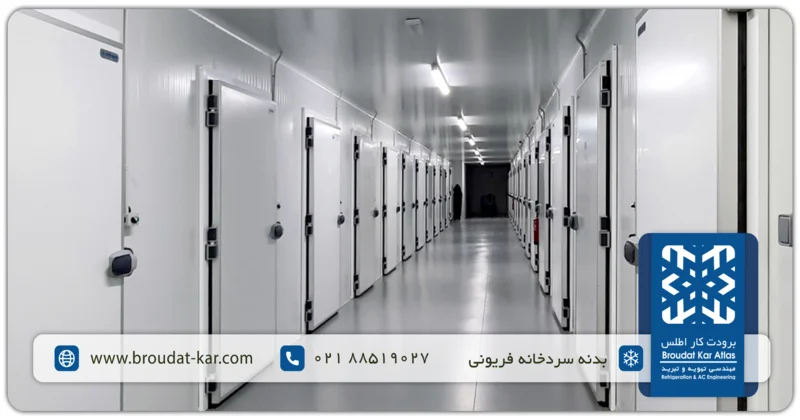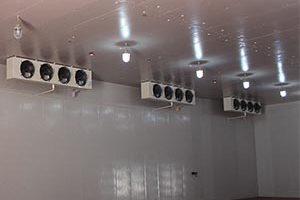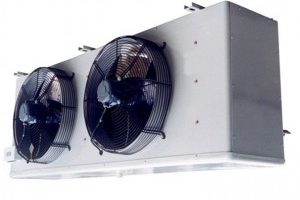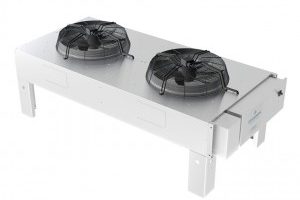What is a Freon Cold Store?
A freon cold store, is a cooling appliance that utilizes Freon refrigerant within its refrigeration system to achieve and maintain low temperatures. Operating within a range typically between +18 and -45 degrees Celsius, Freon refrigeration cycles are commonly employed in various refrigeration facilities. Today, Freon refrigerants are extensively used in household refrigerators, car coolers, air conditioning units like chillers, and commercial cold stores.
The primary objective of a Freon cold store unit is to establish a controlled and conducive environment for the preservation of perishable goods such as food, medications, and other temperature-sensitive products. The functionality of the Freon cold storage system revolves around extracting heat from the interior space of the cold store, effectively lowering the temperature and ensuring the quality and freshness of the stored items. These systems play a pivotal role in extending the shelf life and ensuring the safety of perishable goods stored within cold storage facilities by efficiently removing heat and maintaining the desired low temperature.
Stay Cold, Stay Ahead! Freon Cold rooms for Consistent Product Quality
Introduction to Types of Freons
Freon refrigerants play a pivotal role in various refrigeration and air conditioning systems across different industries. In this overview, we’ll delve into the common types of Freon refrigerants and their distinct characteristics.
- R22 (Chlorodifluoromethane): Also known as HCFC-22, R22 is a high-efficiency Freon refrigerant. Despite its effectiveness, its production has been halted in many countries due to its ozone-depleting properties. Unfortunately, the release of R22 poses significant environmental risks due to its ozone-depleting nature.
- R134a (Tetrafluoroethene): R134a is an HFC refrigerant introduced as an alternative to R22. While it has lower efficiency at temperatures needed for cold room, R134a has a lesser environmental impact and plays a minimal role in ozone layer depletion. Operating at moderate pressures, R134a finds suitability in high-temperature applications such as chillers, car air conditioners, and refrigerators. Occasionally, it may be utilized in constructing cold storage units above Safari.
- R404a (Tetrafluoroethane and Pentafluoroethane Combination): R404a is a blend of HFC refrigerants, comprising Tetrafluoroethane and Pentafluoroethane. It is commonly employed in low and medium temperature refrigeration applications, including subzero cold storage and freezing tunnels. Notably, R404a exhibits exceptional efficiency at low temperatures, making it ideal for sub-zero freezers and freezing tunnels.
Understanding local regulations and industry guidelines is imperative in selecting the appropriate refrigerant for specific applications. Compliance with environmental standards ensures sustainable practices while optimizing system performance for efficient operations.
Components of a Freon Cold Storage System
Freon refrigeration systems typically cater to small to medium-sized refrigeration facilities. These systems comprise essential equipment such as a compressor, evaporator, condenser, receiver tank, electrical panel, valves, and control devices. These components work cohesively to regulate temperature, ensuring the preservation of freshness and quality for temperature-sensitive goods.
Freon Cold Store Compressor
Within the refrigeration cycle, the compressor serves two primary functions: compressing the refrigerant and facilitating its flow. Compressors come in various types, each with its distinct advantages and disadvantages, selected based on specific usage, requirements, and limitations. Typically, hermetic and semi-hermetic piston or screw compressors are employed in constructing freon cold storage facilities. Additionally, in certain conditions, open-type compressors may also be utilized in Freon cold room construction.
Freon Evaporator
The evaporator functions as a heat exchanger, facilitating the absorption of heat from the interior of the cold store by the refrigerant (Freon), causing the refrigerant to evaporate. This evaporation process occurs within the evaporator coil, utilizing direct expansion (DX) facilitated by the expansion valve. As a result, the temperature within the cold room decreases as heat is absorbed from the surrounding environment and the products stored within. Freon cold storage evaporators typically employ a combination of copper tubing and aluminum fins within a coil, complemented by reverse fans to generate a cold air flow.
Freon Condenser
The condenser, functioning as a heat exchanger, plays a crucial role in extracting heat from the refrigerant compressed by the compressor, transitioning it from a high-pressure gas to a liquid state. It effectively transfers heat from inside the cold room, as well as heat generated during motor operation, to the surrounding environment. This process allows the refrigerant to release thermal energy, enabling it to condense once more and reenter the cycle. Condensers come in various types selected based on geographical conditions and operational limitations. Air-cooled condensers, comprised of coils with copper tubing and aluminum fins, along with axial fans, are commonly utilized in the construction of Freon cold storage system. Additionally, in situations where water is available, water-cooled condensers and cooling towers may be employed. Water-cooled condensers typically adopt the form of shell and tube heat exchangers.
Refrigerant Receiver Tank
The receiver tank functions as a storage reservoir for liquid refrigerant within the system. As refrigerant flows throughout the system, the receiver ensures a consistent supply of refrigerant to the evaporator, facilitating efficient and uninterrupted cooling. Typically positioned slightly lower than the condenser, the receiver tank utilizes gravity to accumulate refrigerant gas after it condenses into a liquid within the condenser.
Electrical Panel
The electrical panel is one of the components of the freon cold storage system, which is responsible for controlling and distributing electrical power to other components of the refrigeration system. The electrical panel actually acts as a center for managing electrical connections, fuses, pressure and temperature switches, and other control devices. The panel manages the safe and efficient operation of various components in cold room such as compressors, evaporators, fans and lighting. The switchboard also provides the possibility of accurate monitoring and, if necessary, remote monitoring, troubleshooting and adjustment of electrical parameters to maintain optimal performance and safety.
Valves and Control Devices in Freon Cold Storage
Valves and control devices represent integral components within cold storage equipment, essential for the precise regulation and management of refrigerant flow and system performance. Various types of valves, including expansion valves, shut off valves, solenoid valves, filters and strainers, sight glasses, and vibration absorbers, are strategically incorporated into the refrigeration system to oversee refrigerant flow, pressure, and temperature. These valves ensure proper refrigerant distribution, optimize system efficiency, and safeguard against potential issues such as pressure or temperature fluctuations.
Additionally, control devices such as thermostats, pressure and temperature switches, electronic controllers, among others, play pivotal roles in monitoring and supervising the safe operation of Freon refrigeration equipment. Controllers facilitate accurate temperature regulation, system automation, and implementation of safety protocols. They uphold optimal temperature levels within the cold storage environment, issue alerts for any anomalies, and permit adjustments to enhance energy efficiency and operational effectiveness.
Valves and controls collaborate synergistically to uphold the reliable and efficient operation of refrigeration equipment. Through their meticulous integration and configuration, they ensure optimal performance, temperature stability, and safety within Freon cold storage facilities. This concerted effort helps preserve perishable goods and sustain ideal storage conditions for prolonged freshness and quality.
Technical Specifications of Freon Cold Storage Systems
Freon Cold Room Insulation
Cold rooms are constructed with polyurethane sandwich panel insulation, featuring an exceptionally low heat transfer coefficient to minimize thermal conductivity and uphold the desired temperature levels. The recommended insulation thickness is 10 cm for temperatures above freezing and 15 cm for temperatures below freezing. Additionally, we offer options for hinged and sliding insulated doors to suit varying needs.
Refrigeration System
The refrigeration system within Freon cold storage units comprises European-brand compressors, heat exchangers sourced from top domestic brands, and high-quality valves and control devices from reputable European manufacturers.
Electrical Panel
An integral component, the electrical panel encompasses the power and control circuits equipped with electrical components, current and voltage controllers, regulating the operation of the refrigeration system. It facilitates precise temperature control, monitors and sets parameters such as temperature, defrost cycles, and system status.
Safety Systems
Freon cold storage systems boast comprehensive safety features including pressure sensors, temperature sensors, and alarms to ensure secure operation. These systems continuously monitor critical parameters, promptly alerting operators of any deviations or potential issues. Moreover,
Freon Cold Storage Temperature Ranges
Freon refrigerators offer versatility in maintaining a broad spectrum of temperature levels, catering to specific application requirements. Temperature ranges can span from +25 to -40 degrees Celsius or even lower, with common ranges including:
Above-Freezing Freon Cold Storage
Typically utilized for storing products such as fruits, vegetables, and dairy items, above-Freezing cold storage maintains temperatures around zero to +5 degrees Celsius.
Below-Freezing Freon Cold Storage
Below-Freezing refrigeration, operating within the range of -18 to -25 degrees Celsius, is ideal for preserving products like meat, poultry, fish, shrimp, and ice cream.
Freon Cold Rooms: The Hassle-Free Choice for Small Business’s Storage Needs.
Freon Blast Freeze
The Blast Freezer, operating at temperatures between -30 to -40 degrees Celsius, is employed to freeze items such as meat, poultry, fish, shrimp, and certain non-leafy vegetables.
Temperature conditions within each cold storage facility may vary based on the types of products stored, industry standards, and regulatory guidelines. Atlas Refrigeration Company designs and manufactures Freon refrigerators with custom temperature ranges tailored to suit diverse cold storage requirements. Collaboration with industry experts and adherence to refrigeration standards and guidelines during facility design and setup enhance operational efficiency and reduce costs associated with cold storage operations.
Advantages and Disadvantages of Freon Cold Storage Compared to Ammonia Cold Storage
Advantages of Freon Cold Storage
- Safety: Freon refrigerants like R22, R134a, or R404a are less toxic compared to ammonia, enhancing overall safety in Freon cold rooms, especially in environments with stringent safety regulations.
- Odorless Refrigerant: Freon refrigerants do not emit odors, which is beneficial for cold stores situated near residential or commercial areas where odor emissions could be problematic.
- Maintenance: Freon refrigeration systems generally demand less maintenance than ammonia systems, boasting easier servicing and a lower risk of corrosion, thus potentially reducing long-term maintenance expenses.
- Flexibility: Freon cold storage offer flexibility in design, size, and installation location, making them suitable for various environments, including urban areas subject to strict regulations limiting the use of ammonia-based systems.
Disadvantages of Freon Cold Storage
- Environmental Effects: Freon refrigerants, particularly those containing hydrofluorocarbons (HFCs), possess a relatively high global warming potential (GWP) and contribute to adverse changes in weather patterns when released into the atmosphere, making them less environmentally compliant compared to ammonia refrigerants.
- Efficiency: Freon refrigerants generally exhibit poorer thermodynamic properties compared to ammonia, resulting in higher energy consumption to achieve and maintain low temperatures. This inefficiency leads to increased energy costs, rendering Freon-based refrigeration systems less suitable for industrial-scale operations and locations with high cooling demands requiring diverse temperature ranges.
In summary, while Freon cold storage offers advantages in safety, odorless operation, maintenance, and flexibility, it also carries disadvantages related to environmental impact and energy efficiency compared to ammonia-based systems. The suitability of Freon refrigeration systems depends on the scale of operation and specific cooling requirements, with larger industrial settings often favoring ammonia systems for their efficiency and environmental friendliness.
Atlas Refrigeration Co. Services for Freon Cold Store
Design of Cold Storage
Atlas Refrigeration Company boasts expertise and extensive experience in delivering comprehensive design and engineering services tailored for Freon cold stores. Our seasoned team customizes refrigeration systems to offer both standard and personalized solutions, addressing specific customer requirements. Leveraging cutting-edge software and advanced design methodologies, we engineer refrigeration systems that prioritize factors such as temperature control, space optimization, insulation, and energy efficiency. By optimizing performance and preserving the quality of stored goods, our Freon cold storage designs adhere to the highest industry standards.
Installation and Operation of Frioni Cold Storage
Our proficient technicians and project managers possess considerable experience in installing and operating Freon cold storage facilities. We manage all aspects of the installation process, encompassing equipment placement, refrigerant piping, electrical connections, and integration of control systems. Our team adheres to standardized installation and operation methods while complying with safety protocols, ensuring peak performance of the cold store. We employ modern testing and comprehensive commissioning procedures to validate system performance, enhance energy efficiency, and uphold compliance with refrigeration industry standards.
Maintenance and Service of Freon Cold Store
Regular maintenance and servicing of Freon cold storage systems are essential for ensuring stable operation and temperature maintenance. Our dedicated team of technicians delivers comprehensive maintenance services, including system inspections, exchanger cleaning, refrigerant leak detection, and component testing. We offer tailored preventive maintenance (PM) programs catering to specific customer needs, guaranteeing reliable and efficient operation of their cold storage equipment. In the event of any issues or failures, our responsive support team offers fast troubleshooting and repair services, minimizing downtime and ensuring uninterrupted operation.
Warranty and After-Sales Service of Freon Cold Store
At Atlas Refrigeration Company, we are committed to providing top-notch service for our products. From design and engineering to installation, maintenance, upgrades, and training, we offer a full spectrum of solutions to fulfill our customers’ requirements. Our objective is to deliver reliable, efficient, and cost-effective refrigeration systems that maximize the shelf life of perishable goods and bolster the success of our customers’ cold storage operations. To this end, all our products come with a one-year warranty and 10 years of after-sales service.
Freon Cold Store Pricing
Before delving into our freon cold store pricing, we want to underscore our commitment to delivering high-quality solutions tailored to your requirements. With our extensive experience and expertise in the refrigeration industry, we take pride in having constructed reliable and efficient Freon refrigeration systems across the country and the Middle East. These cold storage facilities ensure precise temperature control and optimal product storage, reflecting our dedication to excellence.
Our expert team collaborates closely with you to comprehend your needs and offer expert guidance throughout the process. Our experts stand ready to provide advice, accurate pricing information, and technical specifications tailored to your requirements. Simply reach out to us, and we’ll be happy to assist you.
Conclusion on Freon Cold Store
In conclusion, Freon cold storage facilities offer a dependable and comprehensive solution for preserving perishable goods across various industries. Freon-based refrigeration systems, equipped with safety features, ease of maintenance, and flexible design and installation options, enable precise temperature control and efficient storage capabilities. However, environmental considerations must be taken into account due to the refrigerant’s global warming potential.
Overall, Freon cold stores, when designed, installed, and maintained by experienced professionals, represent a practical and effective means of maintaining low temperatures and ensuring the quality and freshness of stored products. As the industry evolves, it’s crucial to stay abreast of the latest developments and regulations to optimize operational safety, sustainability, and functionality of refrigeration systems.
Fluorocarbon refrigerants are generally colorless and odorless, require no complex safety equipment, and the systems can operate semi-automatically without constant supervision.
Yes. The simple and flexible design, easier maintenance, and reduced need for specialized training are common reasons for using fluorocarbons in small to medium commercial applications.
Key components include compressors (piston or screw), evaporators, condensers, receiver tanks, electrical control panels, and valves regulating temperature and pressure.
Yes. Common options include R-22, R-134a, R-404A, and R-507—some older and some newer, with more environmentally friendly properties.
The biggest challenge is managing energy consumption and preventing refrigerant leakage, as both increase operating costs and raise environmental concerns.
Related posts
Freon Cold Storage
Freon Evaporator | Components, Specifications, Design, and Selection The ATE series Freon evaporator, available in a wide range from 3
Choosing Between Ammonia and Freon in Industrial Refrigeration Systems The decision between using ammonia or Freon in the refrigeration cycle
Air conditioner freon condenser The ATC series air-cooled Freon condenser with a wide range of 7 to 240 kW meets
Freon compressor Freon compressors are crucial components in refrigeration systems utilizing CFC, HCFC, and HFC gases as refrigerant. These compressors

